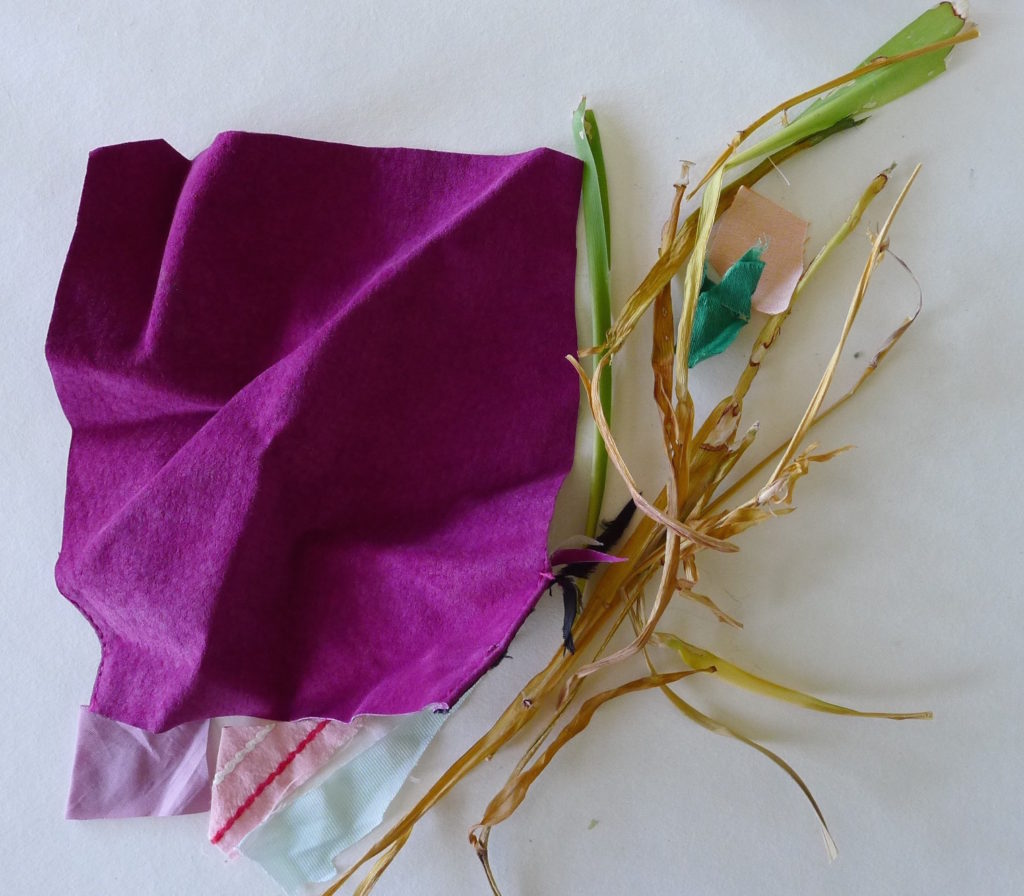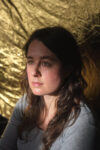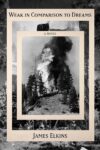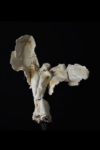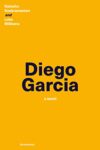This essay first appeared in the Full Stop Quarterly, Issue #8. To help us continue to pay our writers, please consider subscribing.
This conversation came about as a recognition of our parallel work and common interests—in reading situated at a site of feminist tension, where feminist criticality intersects with other kinds. Together moving into areas of mutual interest in process, chance and materiality, we are beginning to develop a set of quiet figurations of reading: as practice, as experience, and as a transitory concept.
Hestia’s works are works of synthesis—across ideas. She involves herself in many different practices of writing and making. She works often in collaboration, and always with a sense of working alongside others. She appreciates this gesture in others too.
In the texts that Julia makes, very specific relationships to correctness are developed. Reading her work I find myself very close to language at a formal level; it’s challenging and quiet at the same time, and it refuses to be rushed at. Her work insists on the marks of its own production, just so, and exists most profoundly in relation to its own logics.
Part 1
Hestia Peppe: I feel like reading is usually characterised, by a lot of people, as passive, do you think that’s true?
Julia Calver: I suppose that sense of passivity comes from the deep concentration or access that reading gives you to another space, you feel something must be absent because you’ve gone into this other realm. But that doesn’t seem quite right. I don’t think you do necessarily leave stuff behind.
The idea of passivity seems to possibly take away the prospect of a more affective response to the reading like when something makes you cry or when you have a strong emotional response to something you’ve read. That is very physical, so the body’s already very involved.
Hestia: It’s definitely still there, and engaged.
Julia: And sometimes that’s quite a surprising moment of response as well.
Hestia: Yeah you come back to earth. If I have been reading I have like a real sense of relief at having read,
which I forget about sometimes if I haven’t been reading. I’ll read something and I’ll have a much better feeling of flow afterwards, and I think that a lot must be happening in the body for a long time after reading. You’re still processing things for a long time.
Julia: I usually read just before I go to sleep and I see it as a sort of sleep preparation, you can have this good cut between something quite intense and intellectual, and sleep.
Hestia: I think something to do with the linearity of text is soothing. Increasingly I’ve started to think that line is what appeals most to me, of all the things that I’ve studied it ends up as the constant, there’s something really soothing about just following the line of somebody or something else, you just have to go along after them. I like that about it. For a long time I think I was trying to avoid this and that’s why I avoided writing and went to art school but then I studied drawing, which is basically the exact same
thing anyway, just at a different level of abstraction. (Laughs) Or that’s how I think of it. It’s soothing even though it can be complicated and intense.
Julia: I think the decision of leaving off, when you decide ok I’m completely falling asleep I need to stop. The decision of leaving off of that linearity is a nice conscious way of being like this day is finished now. It’s a nice element of choice that’s quite clearly figured. Leaving it on this page, at this paragraph break, and this has just happened, and that’s, yeah, that’s it.
Part 2
Hestia: When you write something, do you always intend for it to be read and out in the world? At the moment I think it feels as though there’s a lot of flattening of reading, writing, publishing, everything into this one idea. What is your relationship with other people who will read your work?
Julia: I think if you don’t publish very much—I haven’t published very much recently, or yet I suppose—you suspend the question of whether you’re going to publish it or not, so lots of your readership is still sitting in this kind of future space where you are like, well, they could/perhaps something will happen, so in that sense it doesn’t seem particularly real or a thing that impacts actually at the moment of writing. But at the same time amongst people I know I do want them to read it and enjoy it so there is a more immediate feeling of wanting to share it. But it is in an extremely limited way and at that point I do often prefer to read it to people rather than have them read it, although I could do both. I quite enjoy reading
aloud my own stuff even if it’s a performance to one person. There’s also something much more interior that I think is happening where I feel like I’m writing often with the sound of a voice that isn’t what I want that’s coming from a feeling of something that is contemporary, which has an established and published position (laughs). That I find quite hard to turn off. I feel that the sensitivity to that becomes more and more subtle to the point at which I sort of get unsure how to negotiate it because it feels like it reproduces itself very smoothly. I’m not saying necessarily that the writing has the technical ability to reproduce something that you’ve seen elsewhere, because I don’t think that’s necessarily true, but that you’re sort of hearing in it—perhaps not the style—but more the limitations of what’s available as content. And the sort of tone that comes from that feels totalising. The work, and the feeling that’s available to it, are somehow limited by this heard thing.
Hestia: I really relate strongly to what you are saying there.
Julia: It’s quite hard to describe.
Hestia: Yeah, a kind of aetheric contemporary voice that is sort of contagious. When I write it’s like this chatter in the back of my mind, different voices—everything else I’ve read. There is [also] that kind of contemporary general voice based on content. Perhaps it’s because I am reading lots and lots of other people’s personal voices in constant social media posts. All of that stuff creates a definite tone. Do you find you have to be careful about what you read when you’re trying to write?
Julia: I’m reluctant to admit that there is a feeling of contagion with reading other people. I think there always is but there are also positive sides to that where you start to read and see how things can be done technically, which I like—just noticing the nice way someone might join two sentences or have a break or do light but beautiful things. And the layering of that with the involvement of something that is affective—a deep concentration—and still enjoying reading it as a totality—that’s maybe the nice side of contagion, where you are doing a double reading of pleasure and technique at the same time.
Part 3
Hestia: Do you hear reading when you read, in your head? Is it a sound?
Julia: Yeah. (exhales and laughs)
Hestia: Because apparently not everyone does.
Julia: It makes reading quite slow but I can’t quite imagine it without that. I think that the nice thing that the voice in poetry seems to open to, seems to feel most immediately, is the performance of reading aloud, which I think should be part of a conversation about fiction as well but it’s so often not the case. I find it so impossible to score the writing for the kind of reading you want it to have when read aloud that you always end up with two possible versions. Someone can read it on the page but you can’t ever, whatever you do with it within that, with punctuation or layout or anything, you can’t reproduce that nuance of verbal delivery and I quite like feeling that disjunction of possibilities. I suppose when you’re writing something that’s considered fiction there’s not necessarily the assumption that it will be read out.
Hestia: Do you feel like there is a relationship between conversation and your writing or is it much more private?
Julia: I think I’ve been thinking about it more as a form recently in terms of what a conversational form or dialogue might allow so yeah, again totally recouping it inside the process of writing, not necessarily thinking externally.
Hestia: But that is part of it as well.
Julia: I’ve found it quite useful as a way of getting some momentum to the writing that allows it to use repetition and to do more extended things by having this back and forth movement that is sort of additive. So a conversation could be a way of extending.
Hestia: It’s a bit like growing plants where you have to pinch off the top because otherwise they will just keep going up up up up up up and then collapse whereas when you have dialogue you can have dialectical relationships, you can build things, you can have oppositions or agreements or synthesis or whatever and it gives you a lot more structure to work with. I love that because then the whole topology of it changes, you have the relationality inside the text instead of just being in a tunnel of point of view.
Julia: Yes.
Part 4
Hestia: Do you feel like you were technically trained as a writer?
Julia: No.
Hestia: Because I don’t feel that at all.
Julia: I feel like I do just sometimes come to the surface a bit thinking I can see something’s gone wrong here but I don’t know how to do it or it takes me a really long time to do the editing. Not necessarily because I am trying to create a grammatical correctness that I think exists and should be followed but that the perception of what’s happening and how it’s happening grammatically for me is really slow. I don’t particularly want to change that by going through a more technical learning process, because I quite like that slowness and bluntness trying to work out is this the tense I really want? What happens when I use that? I like the confounding-ness that you can stay with if you haven’t tried to learn how to do it in a more correct way.
Hestia: I do that too, I use my own stupidity as a challenge.
Julia: (laughter) Yes that’s it.
Hestia: Not stupidity but perhaps my own untaughtness as the limitation of my practice, that’s the rock, of how I do things. It’s as if I start from the position of being like, I don’t know how to do this but what have I done anyway? Now try to resolve it.
Julia: Yeah!
Hestia: Maybe that’s like an art school process, we both went to art school—
Julia: yeah I think it possibly does sort of come from that.
Hestia: Or it’s that the lack of other teaching that you get at art school is filled in by the general ability to work from ignorance?
Julia: Yeah, (laughs) yeah I think there’s something that exceeds the knowledge that a problem could be quite well described in another terminology. There’s a sort of pleasure that exceeds a grammatical problem. Because of not being able to describe it, that means you can stay with it for much longer and I think that is something really good about the art school education and that’s what I wanted to do at one time. You do just get to a lot of points where you’re faced with some thing and you don’t really know how you’re going to describe it or what you’re going to do with it. I still know a lot of people who are artists from that time and I like the kind of conversations where you’re just standing in a room looking at a quite abstract piece of material and going yeah, should it be more like this? The series of choices is very material and very simple yet you can’t fully articulate the differences they would make or the ways that you’re maybe moving this thing around the room—there’s something there that I still find really attractive.
Hestia: Me too!
Julia: This confounding thing of the material, what am I doing with the material?
Hestia: And what does it demand? What are its demands and what does it need? I don’t think I learned the word ‘ekphrasis’ until two years ago. I was like Ohhhh and realising this was where I had somewhat veered off the art path that I’d chosen kind of randomly. I kept talking and talking and art teachers were always like time to do it now.
Julia: Yeah I really loved the talking.
Hestia: I also got told to stop reading at art school, I was repeatedly toldthat I read too much and I need to stop because it’s getting in the way but I wanted to read all these books and talk about all this stuff! I think I’ve never really fully recognised the distinction between images and words anyway I am maybe just greedy and I want both of them and I didn’t accept the need to have picked one or the other at all.
Julia: yes, yes yes!
(laughter)
Part 5
Hestia: What do you do when you get to a point like those you were describing where there is something not as it should be, something confounding?
Julia: At a lot of those points, where I get stuck, it’s because I’ve already discounted a lot of ways of doing things—around how to presence something in a text, how to presence an object, whether something is definite or indefinite, whether something is remaining within the present tense. And these prohibitions I’ve established seem to have built a context that includes some kind of temporal dimension probably. So that even small changes of articles for example, have massive implications for the material and stuff of what I’ve already written, the contingent rules of what I’ve set up. But it’s not about defining (or redefining) your rules really, at this stuck point, but about seeing what can still be made, how a thing can still have
action or movement.
Julia: I like the fact that you can see error moments that have been used to do something and, also, that there are other latent, inelegant bits that could be resolved differently. I like having both—utilised errors and potentially resolvable parts that nonetheless remain uncoopted. There should be, I suppose, a sort of diciness about some of these elements where they might just be completely read as mistaken. I like that existing.
Hestia: So you don’t take it to someone to be like, how does this read to you?
Julia: Yeah, not usually just because—it’s partly coming from this untaughtness of writing—it’s quite hard to describe why you want something to look kind of weird. (laughs) So yeah I find in that moment that it’s quite difficult to hold on to those bits that you think you sort of like. I think often what you’re getting back
when you ask someone to read something is how can it be improved and I don’t necessarily want that. I tend to go to people to ask them something specific. I know someone can sort this out for me that I do want. I want this bit to be done in a more grammatical sense-making way so I ask people. I tend to have a lot of neologisms in stuff I’m writing and sometimes I don’t want them so I know other people will be much more sensitive to taking those out and I’m happy to have that done.
Part 6
Hestia: I was thinking about how all the questions I could think of about reading imply that one reads a thing. And that in your writing there are lots of things which are getting read almost as if the subject of your writing is things getting read. So there are all these objects, which in some way read more as subjects
than the characters or the people in your writing. That is also something I’ve tried to do in writing and I think again that this is something to do with the use of an art practice within a writing practice, where it’s as if objects are more likely to bloom somehow, as if they have a bit more subjectivity.
Julia: Yeah.
Hestia: Perhaps people who’ve been trained in the arts have an affinity for objects, like an animism almost?
Julia: Yes, yeah.
Hestia: So do you always need to be reading objects or can you read subjects or do subjects read and not objects? Does a subject have to read an object or can it be the other way round or change or be reciprocal?
Julia: This makes me think about the possibility of using reading as a way of describing what we have been talking about—the confounding presence of something that you don’t know how to get past, this object kind of lying in a room and you’re moving it around the room kind of looking at it and thinking and still finding this confounding presence. I was thinking of this when I was reading a piece of your writing about divination as an activity that happens at a point of not knowing and I quite like that position for reading and seeing that as a way of throwing a bit of meaning a bit further away. So you’ve got a thing that’s immediately present there but you’ve somehow absented it’s possibility to construct meaning, while at the same time that doesn’t mean you don’t believe that it can. It’s difficult to describe.
Hestia: Yeah ooh! I am interested in what you say about throwing because well a lot of different modes of divination involve actual throwing.
Julia: That wasn’t deliberate!
Hestia: Yeah but there is this element of that—I am really bad at throwing cause I have bad depth perception so throwing is interesting to me because it’s not something I have any control over. I don’t imagine it as being like a target-aim situation; I imagine it as a flinging . . . ! The Tarot card, the Eight of Wands, in one deck I have, is a figure shooting wands from a bow and they all go in lots of directions. It’s this idea of the experiment, of seeing where things land and that’s similar to throwing. You don’t actually throw the sticks in the I Ching but in a way you might as well because they are randomised. Anyway, yes it’s this reading which is definitely the sense of reading that I’m most interested in. I don’t know what to do so I’m going to read on some level, on like any level. When I’m stuck I try to make sense of what’s around me and then that leads to a way into the world, a way back into the world in which there’s meaning again, having not been able to find any and not known where I would get any from. This so so feels like stating the obvious to say but I think it isn’t necessarily obvious: that that’s a relationship to reading, I think that’s what you’re saying?
Julia: Yeah yeah. Yeah, yeah! I remember you saying that your ideal material for doing this is a kind of arbitrary material. I definitely see the process that you’re talking about as a way of doing something at a stuck moment that that allows for something else later, which is unknown, and I like that. I also want to look at it from the other direction—from trying to produce this material that is arbitrary enough so that it can even contain that possibility of reading. I really like trying to stay with that, it’s a type of abstraction I suppose but it’s also an abstraction that’s quite difficult to maintain and which is a struggle to describe in terms of practice.
Hestia: Yeah it also means that a practice like this is very porous and open to someone else coming to it. Because realistically, I don’t think, and probably you will agree with this, that you can really assume the reader you’re going to get and I wouldn’t want to ideally. Even though I love the idea of my loved ones reading my work, to be honest it’s often the case that it’s not them that have the best way into it or that it’s not easiest for them to access. I once wrote something (it’s not particularly important what it was) about how this something should be available to everyone and I really feel strongly that I was wrong about that and that what I meant was anyone and that distinction is important.
Julia: Yeah
Hestia: Or even every and any, forget the one bit. And then to bring it back to subjecthood or objecthood, any anything is so much more interesting than everything to me.
Julia: (laughs)
Hestia: It’s trying to keep maintaining that distinction all the time between as you say this type of abstraction, to not use this universalism of everything but instead arbitrariness.
Julia: Yet arbitrariness is not always happening in a kind of particularity either, it doesn’t always help to particularize.
Hestia: Yeah. It always feels like gardening to me like you’re trying to make space for something but like that thing is wiser than you and knows better what it wants and you just have to make a little place for it to happen and then hope for the best.
Julia: And also I like the idea that the garden goes through moments of a kind of weirdness in order to anticipate other moments of beauty like yeah well this has to be pruned now so it’s gonna look a bit weird for quite a long time and then it’ll look nice and then it has to go back through that again so yeah I like that the garden is not really unfinished as such but that you’re always seeing the sort of processing of the plants.
Hestia: There’s a lot of waiting I guess.
Julia: Yeah! I wrote something about this the other day that I had to cut out because it felt like it was too direct but it was to do with invisible work. I suppose that something of the temporality of the work is made more invisible because there’s this really obvious visible ugliness of having to cut something to the ground or having to stake something. I do think of a garden as an arena of kind of quite invisible production.
Hestia: That’s very much related to care work as well isn’t? Practice makes a lot more sense if you think of it as care rather than creativity. Perhaps I’m just really uncomfortable with the idea of creation. I never got the hang of that at all but I really like wandering around checking things.
Julia: I think maybe the thing with the word creativity is that it belies the amount of time that’s involved that cannot be visible or doesn’t exist in your completed works and can’t really be described at all.
Hestia: I’ve been going through the Tarot deck and I’ve found the card I mentioned, the eight of wands, so I think that could be it, though it’s not particularly the end point, perhaps any will do—this idea of throwing, well they’re the wands so they’re creative, they’re alive with green leaves on and you throw them to the wind I guess, see what straws show which way the wind blows, that whole thing—that’s sort of how I think about experimentation or how I’ve gradually come to have an answer for the question of what is experimentation, it’s that card that I think of.
Julia: It really makes you want to imagine the moment of them all falling and how nice that would be, how heavy they are and which ends of themselves they would land on.
Hestia: It reminds me of how, in procedural dramas they have spatter diagrams—you know, where and how the blood’s spattered and how it means you can tell which way round the person was standing when they were wounded. (laughter)
Julia: They’re going to make a big noise when they land.
Hestia Peppe works as an artist, writer and private tutor and lives in London. Her work has been published by Full Stop, The Learned Pig, Spike Art, 4 Columns and is forthcoming from Living in the Future. Her poetry is included in the anthologies Bad Feelings and Disappearing Curtains. She is co-editor of fiction at 3:AM Magazine. In 2018 she is taking up a GTA Scholarship in Art and Design at Sheffield Hallam’s C3RI.
Julia Calver lives in London. Recent work has been published in Infundibulum: stories of non-ordinary reality by women, Makhzin, 3:AM, and The Arrow Maker and is forthcoming in The Stinging Fly.
This post may contain affiliate links.



